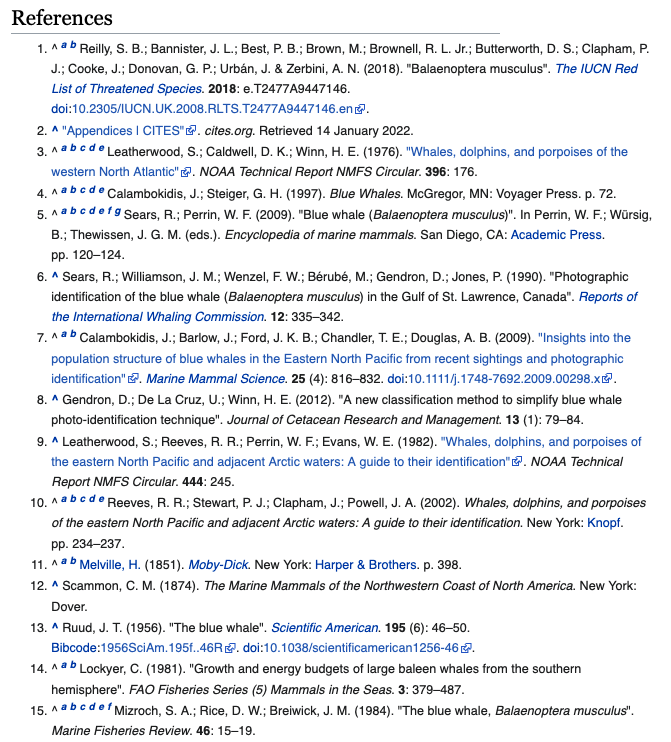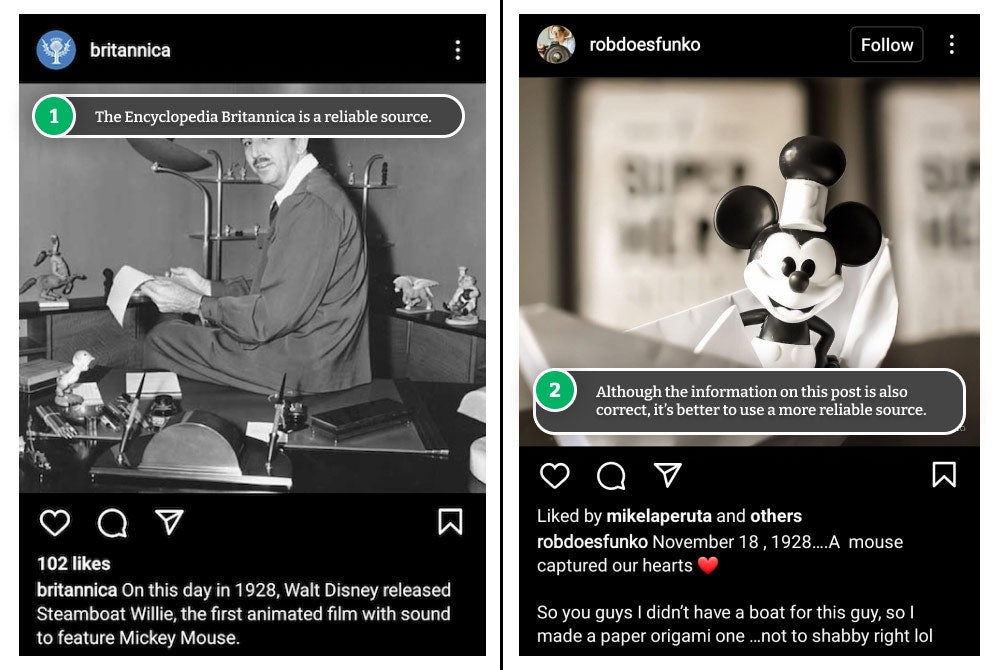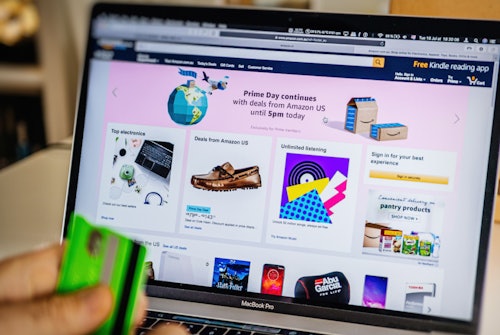- How to Do Online Research
- Trustworthy Resources
- How To Tell if a Website is a Good Source
- How to Use Wikipedia
- What About Social Media?
- How to Cite Your Sources
- Sourcing Images
- Frequently Asked Questions
Gone are the days of looking up a hard copy encyclopedia for your latest assignment—nowadays, you can find information on pretty much everything online. Although convenient, this creates a new problem—what's real and what's not? Not only can you run into the issue of handing in an assignment with incorrect information, but your teacher may not accept some of the sources you're using.
Knowing how to find reliable sources and to reference them correctly is an essential skill in school, college, and later life. Every school will have specific requirements around acceptable sources and the number of sources used to corroborate evidence. Many schools will not allow for the use of Wikipedia in any academic paper.
How to Do Online Research
- Search engines (Google et al): It'll be no surprise that the easiest way to start your research is by Googling the topic. This will give you a better understanding of the topic and help you know what kind of websites you'll need to complete your project.
- (For more advanced topics, Google Scholar can help you find academic journals and articles.)
- Use online dictionaries: If you need to provide definitions of words, you can use the Mirriam-Webster dictionary or other official dictionaries (don't use Dictionary.com or Wikipedia).
- Use encyclopedias: Encyclopedias, like the Britannica, are excellent sources of information for many things and should be one of your first stops when researching a topic.
- Verify the websites: When you find the information you'd like to use, be sure to verify that the website is trustworthy is reliable first (more on that below).
- Find more than one source: Don't just use one source, especially if you're using a website that isn't well-known. Instead, try to find the facts on more than one website (or within an academic paper or journal).
- Put together your source list: This should be done as you go—the last thing you want is to write your essay then realize you don't remember which websites you pulled the information from.
Trustworthy Resources
If you haven't been given clear guidelines on which websites you can and can't use for your research, your teacher may have told you only to use trustworthy or reputable sources. But what exactly does that mean?
Generally, legitimate and accepted sources include:
- News websites
- Academic journal articles
- Print publications (including books)
- Public reports
- Government websites
Other websites are also accepted as trustworthy sources, and this is when you'll need to do a bit more research first.
Online and Print Sources
| Good Sources of Information | Generally Not Accepted* |
| Academic journal articles (Google Scholar) | Wikipedia |
| Government websites (.gov) | Dictionary.com |
| Educational institution websites (.edu) | Personal blogs |
| Public reports | Personal opinions on forums |
| News websites | Quora |
| Print publications | Social media |
| Well-known publication websites | Vlogs |
| Encyclopedias (print and online) | |
| Dictionaries (print and online) | |
| Reference books and websites | |
| Magazines (print and online) | |
| Software websites | |
| Videos (from reputable publishers) |
*There are some exceptions to the rule depending on your assignment. For example, a personal blog by someone probably won't be the best source of information on whales. However, it may be fine if the blog belongs to a renowned marine biologist.
Similarly, if your assignment requires you to gather opinions on a particular issue, then Reddit may be an appropriate source.
Examples of Acceptable Sources by Topic
How To Tell if a Website is a Good Source
To figure out if an article or website is trustworthy:
- Research the author: If the page has the author's name, try to find more information about them. This will generally help you figure out if the information is legitimate or not. Although an author's byline on an article doesn't guarantee it's a trustworthy source, it's a pretty good sign. It's great if the author:
- Has written other pieces (or books) on the topic
- Has a background in the subject matter (e.g., relevant college degree)
- Look for a resource list/bibliography: Some sites (especially health-related sites) will include a list of resources at the bottom of the article—this is a good sign that the site is trustworthy. Additionally, you can usually find a reputable source from this list.
- Research the website: Look up the company that owns the website and see how well-known and trusted it is for the information you're citing. You'll want to use sites that are:
- Well-known and well-respected
- Credible
- Check media coverage: Look for a Media or Press page on the website. This will show you press coverage that the company has had in the past and help you get a better idea of whether or not they're legit.
- Check the published date: If an article doesn't have a publication date, you can't verify that the information is still valid.
Do the CRAAP Test
- Currency: How up-to-date is the information, or when was it shared?
- Relevance: Does the information fit your topic?
- Authority: Is the author or website credible and trustworthy?
- Accuracy: Is the information correct?
- Purpose: What was the goal of the article?
IMPORTANT: The Difference Between Google vs Google Scholar
It's extremely important to understand the difference between Google and Google Scholar as they are completely different systems.
The process of researching, publishing, and peer reviewing of academic information is a foundation of our modern society (science, technology, mathematics, etc.). The internet, however, is another beast entirely.
Google was invented to index websites and does an amazing job of that. However, anyone can make a website with their own facts and figures and use search engine optimization (SEO) to get it indexed. If you Google "flat earth society," you will find people who believe that Earth is flat. This does not mean this claim is true, the results from that search are not guaranteed to be reliable sources.
Google's job is to index the public internet (although it has become much better at removing mistruths and aggregating questions and answers).
On the other hand, Google Scholar only indexes scholarly literature and academic sources. Google has been scanning books and research papers for many years and Google Scholar is now much more convenient than going to the library, although it still has limitations.
How to Use Wikipedia
Wikipedia isn't recognized by most (if not all) schools as a trustworthy source of information for student projects. This is because anyone can contribute to Wikipedia—literally anyone. Anyone can go into a Wikipedia article, edit, and publish it as they like.
Wikipedia even states that there may be incorrect information on the site, making it a very unreliable source. Therefore, Wikipedia should never be your only (or primary source) of information.
However, Wikipedia can still be helpful for assignments. First, you can use Wikipedia to understand the topic better, so it's a great first step in the process. Secondly, you can use the References list on the Wikipedia article to find a better source. They may not all be accepted by your teacher, but most of them should be fine.

What About Social Media?
While using specific social media posts and YouTube videos may be accepted, try to avoid using them as sources unless your essay calls for it. For example, suppose your assignment is about a celebrity. In that case, you may be able to use their Instagram posts as part of your assignments.
Additionally, don't use a social media post as your source of information. If the post references an article published online—use that instead.
Remember, an influencer isn't necessarily a "trustworthy" source. Just because they're famous doesn't mean they know what they're talking about and are qualified to give information on specific topics. 
There are several different ways to cite social media posts and pages as a source:
How to Cite Your Sources
Each school and class may have different requirements for citing sources. If your school doesn't provide you with guidelines, choose one of these options. (Note that there are various options for both in-text citations and resource lists.)
Remember, be consistent—don't jump from one style of sourcing to another.
Choose Your Style Guide for Source Citation
| Style Guide | Who Uses It |
| American Psychological Association (APA) Style |
Scholarly writers for:
Preferred by many:
|
| Chicago Manual of Style |
|
| Modern Language Association of America (MLA) Style |
Preferred by:
|
Quick Guide to Citing Websites
(Check individual style guides for more information on citing other publications, such as journal articles.)
In-Text Citations vs. Reference Lists
In-text citations are included within the main body of your essay and refer to entries in the reference/source list (found at the end of your document).
In these examples, we've used the following:
- Author name: John Taylor Smith
- Publication date: February 2, 2022
- Page title: Meet the biggest animal in the world
- Website name: World Wildlife Fund
- Organization name: WWF
| Style Guide | In-Text Citation Options | Reference List Formatting Examples |
| APA | According to the World Wildlife Fund (2022), the Antarctic blue whale is the largest animal on the planet. According to Smith, J.T. (2022), the Antarctic blue whale is the largest animal on the planet. The Antarctic blue whale is the largest animal on the planet today (World Wildlife Fund, 2022). The Antarctic blue whale is the largest animal on the planet today (WWF, 2022). |
Smith, J.T. (2022). Meet the biggest animal in the world. World Wildlife Fund. https://www.worldwildlife.org/stories/meet-the-biggest-animal-in-the-world |
| Chicago Manual of Style | The Antarctic blue whale is the largest animal on the planet today (Taylor 2022). The Antarctic blue whale is the largest animal on the planet today (World Wildlife Fund 2022). |
Smith, John. "Meet the biggest animal in the world," World Wildlife Fund. February 2, 2022. https://www.worldwildlife.org/stories/meet-the-biggest-animal-in-the-world WWF. "Meet the biggest animal in the world." World Wildlife Fund. February 2, 2022. https://www.worldwildlife.org/stories/meet-the-biggest-animal-in-the-world |
| MLA | According to the World Wildlife Fund, the Antarctic blue whale is the largest animal on the planet today. The Antarctic blue whale is the largest animal on the planet today (Smith). |
Taylor, John. "Meet the biggest animal in the world." World Wildlife Fund, 2 Feb. 2022, https://www.worldwildlife.org/stories/meet-the-biggest-animal-in-the-world. |
Note that each style guide has other options on citing author names versus the entire website as the author (if no author is specified). If no date is specified on the website, put "(n.d.)" in place of the date.
Use EasyBib
Websites like EasyBib can help you generate citations for your source list. Simply paste the URL into the tool, and voila!
Sourcing Images
If you need to include images within your document, you'll also need to source them appropriately. You can cite and source them the same way you would a website or other publication (see above), but include the file format in your reference list.
For example, using the APA format:
World Wildlife Fund. (2022). How big is the blue whale [JPG]? World Wildlife Fund. https://www.worldwildlife.org/stories/meet-the-biggest-animal-in-the-world











Comments